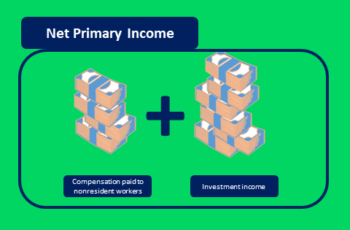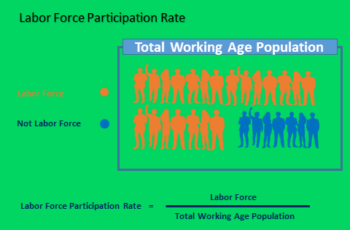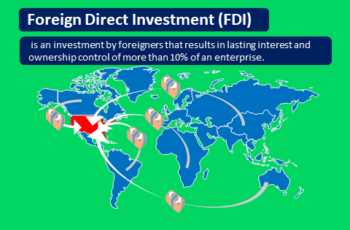What Is Economy?
An economy is a system of allocation of scarce resources to produce goods and services and how it distributes them among residents.
Resources are considered scarce because we have unlimited wants and nothing satisfies these wants. For example, if you are a billionaire, you still want more money.
Generally, resources are divided into human resources and natural resources.
Human resources (HR) are the people who make up the workforce in the economy and own knowledge and skills to produce goods and provide services.
Natural resources are materials available in a market that are technologically accessible, financially feasible, and culturally sustainable and help us to satisfy our needs and wants. Examples of natural resources are land, crude oil, and raw materials.
The economy is defined in an area. For example, the UK economy means the geographic boundary that the UK government can decide on its system of production and distribution of goods and services.
The economy is not the same as economics. Economics is a social science studying the means of production, distribution, and consumption of goods and services. In simple words, economics studies the behavior of economies.
Types of Economic Systems
To differentiate an economic system, we need answers to the following four questions:
- What to produce?
- How to produce?
- When to produce?
- Who are the beneficiaries?
Decision makers of the above questions to define the economic system. If the government answers all of them, it is a complete command economy. If the private sector answers the above questions, it is a market economy. However, if both have their share, it is a mixed economy.
Let us review them.
1. Market Economy
A market economy is an economic system in which the supply and demand forces set prices, and prices guide investment, production, and distribution decisions.
In simple words, in a market economy, consumer consumption and businesses guide the market. Market players are people and businesses who decide what, how, and when to produce, and who should receive goods and services. Prices (impacted by quality and functions) decide who should receive specific goods and services. For example, Ferrari cars are expensive and are for rich people, and Honda and Toyota cars are cheap, and ordinary people buy them.
In a completely free market, government intervention is minimal like setting rules. It is assumed that buyers and sellers are completely aware of their trades, and the government should not intervene.
That is why a 100% free market does not exist. It ranges from minimally regulated free-market to where the government has an active role in correcting market failures. For example, some governments only set interest rates to control prices, while some even set prices. The degree of government intervention defines how free is the market.
2. Command Economy
A command economy is an economic system in which a central authority makes economic decisions.
In other words, in a command economy, it is the government that decides what to produce, how to produce, and who should get those goods and services.
In a command economy, individuals and businesses have little to say about the market functions. Everything belongs, everyone works and receives goods and services from the government.
For example, in North Korea individuals and businesses do make economic decisions. It is the government that decides where to live, what to eat, and what to do…
3. Mixed Economy
As its name implies, in a mixed economy both private and public sectors are involved. This is the most common type of the market.
In other words, market participants in a mixed economy are both private and public sectors.
The government enters to market to fix some market failures such as inflation or recover from an economic recession.
The public sector is part of the market that the government runs, such as roads and public health centers.
The private sector is the part of the economy that is owned by private groups.
In this type of system, everyone makes some decisions. Consumers decide what to buy, businesses decide what to produce and who should get them, and the government also decides about its goods and services.
Final Words
An economic system answers what, how, when to produce, and who should get them.
If individuals and businesses answer the above questions, it is a market economy. If the government fully controls the market, it is a command economy. However, if both sectors are involved, then it is a mixed economy.






